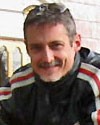For the third year, a diverse and accomplished cohort of Trinity faculty have been selected as CTL Fellows. Like the first two groups, this year’s Fellows include senior and junior faculty members from a range of disciplines. In a monthly colloquium next academic year, the Fellows will discuss pressing issues in pedagogy and share the insights arising from their individual teaching projects—which you can read about below.
Dario Del Puppo, Professor of Language and Culture Studies
“Life Writing and Intellectual Sustainability”
I wish to learn more about experiential writing or “life writing” and I wish to apply it as a means of motivating students to articulate their thoughts and imagination, to make them more expressive and to promote writing beyond the classroom. By “life writing”, I don’t mean only autobiography, but writing in order to understand something better, including oneself. Writing for a course or independent study (let’s call this curricular writing) is obviously primary to a liberal arts education. And students write all the time: They text, post on Facebook, use Twitter, etc… But the latter type of writing is usually less reflective and more reactive. Even the good writing that students do for their courses (which is entirely different from, but influenced by, social media) often remains marginal with respect to their “real” lives outside of the classroom. How can we make writing more central to their life? What if we begin to structure our courses and the curriculum in ways that promote life writing, outside of the classroom, as an important means for students to reflect on their development and whenever possible relate it to course topics. Perhaps this isn’t such a new idea. But it seems to me as being ever more appropriate. My intention is to apply this concept in my courses, a first year seminar and a literature course. As one of the heads in the College’s new house system moreover, I wish to consider how “life writing” might be an instrument for enhancing community among students by developing greater confidence and practice in reflective writing and expression. Just as those who learn to cook sustain themselves physically (and emotionally), those who write (beyond the classroom) are better able to sustain themselves intellectually in the long run.
Scott Gac, Associate Professor of History and American Studies
In the fall 2014, I am building a hybrid course (AMST 285 Born in Blood: Violence and the Making of Ameria) that blends two distinct pedagogical approaches: the large lecture and the small seminar. The goal is to provide an intimate, student-centered learning experience infused with the narrative, interpretation, and context that drives the best lectures. In part this will be accomplished by alternating between a lecture session and a seminar session each week. For seminar sessions the students will be divided into two equal groups. One seminar group will be led by the professor, the other by the TA (with student groups rotating between professor and TA every other week). The greatest challenge, one that has forever plagued the large lecture, is to build innovative, pertinent assignments that gauge student progress and raise student interest. I expect to rely heavily on the CTL Fellows for their insight and guidance as I teach.
David Reuman, Associate Professor of Psychology
“Effective Visual Display of Quantitative Information”
Psychologists routinely translate research evidence back and forth from quantitative to graphical to narrative formats. My primary goal in this project will be to improve my strategies for teaching students how to make these translations in a foundation course for psychology majors – “Research Design and Analysis in Psychology”. I plan to apply criteria for graphical excellence and graphical integrity by drawing on the work of Edward Tufte, John Tukey, and Howard Wainer, among others. These criteria will inform my course-related explanations of key concepts in research design and statistics; they will also serve as the basis for designing effective learning exercises and problem sets for students. I hope that improvements in my teaching repertoire will in turn improve my students’ ability to read graphical displays of quantitative information more critically and also to present results of their own data analysis projects more effectively.
Abigail Fisher Williamson, Assistant Professor of Political Science and Public Policy & Law
“The Case Method and Urban Engagement”
Pioneered in business schools, the case method presents students with a real-life conundrum and places them in the role of the decision-maker. Identifying a proposed solution requires that students carefully analyze available information, often working in teams. Once in the classroom, students do the talking as they defend their proposal and collaborate to reach deeper insights. As a CTL Fellow, I will investigate ways in which the case method or similar applied learning exercises could enrich student learning in politics and policy courses, as well as contributing to our collective efforts to engage with and learn from Hartford. Concretely, I will develop, implement, and evaluate a 300-level seminar incorporating the case method. The course, entitled “Managing Diversity in the City,” focuses on ways in which race and ethnicity intersect with urban governance. The case method is particularly well suited to this course for two reasons. First, the method can ground theories of urban politics in real-life examples, bringing to life the varied constituencies and complex constraints facing decision-makers. Second, it offers the potential for richer discussions of sensitive issues such as race, ethnicity, and class. In discussing a case, students can start from the specifics at hand, ideally moving to deeper and more generalizable insights. I am excited by the potential the case method offers for helping to students to contextualize what they learn in real-life examples, while engaging them with the advantages of our urban location.




